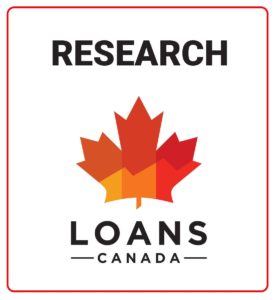 Loans Canada recently completed a new survey, Alternative Lending Study: The Borrowing Experience, and there were some interesting findings.
Loans Canada recently completed a new survey, Alternative Lending Study: The Borrowing Experience, and there were some interesting findings.
Chances are when you’re signing up for alternative lending, you might not be. But due to some challenge in your life, whether it’s due to income or credit, you’re not able to fit inside the box of a traditional prime lender. There’s nothing wrong with that. That’s when alternative lending can come in handy. You can get the money you need to keep up with your monthly payments.
While alternative lending can be like a lifeline for some, it’s not the “Wild West.” Alternative lenders are required to adhere to certain standards as well. By and large alternative lenders are reputable financial companies; however, similar to any other industry, there are a few bad apples out there that have given them a bad name.
Let’s take a look at some of the most interesting findings of the study and how you can protect yourself as a consumer.
Fees
Alternative lending tends to come with a lot more fees than prime lending. Because alternative lending carries more risk of default, the lender passes along a lot of the fees a prime lender might otherwise cover.
There’s nothing wrong with paying fees as long as those fees aren’t excessive and the lender is up front about them. However, it seems some alternative lenders could be doing a better job with that.
28% of respondents reported being charged loan insurance fees without their explicit consent. Perhaps the borrower didn’t take the time to read the contract carefully enough or maybe the contract could have spelled out the fees in a clearer manner. Or maybe it’s a combination of the two. It’s hard to say.
Similarly, 28.7% of respondents reported being charged a rate that was different than what was verbally agreed upon.
If there’s a lesson to learn from this is to ask questions when you don’t understand something and get everything in writing. Even if the interest rate and fees are clearly spelled out, it doesn’t hurt to ask for confirmation in writing that these fees and rates are correct and that there aren’t any more fees you might have to pay later on.
Payments
Most alternative lenders want to be paid via pre-authorized debit. Pre-authorized debit lets the lender automatically withdraw amounts from the borrower’s bank account on set dates. This is completely understandable. Alternative lending carries higher risks. The last thing an alternative lender wants is to be chasing down a borrower for the money that it’s owed.
While pre-authorized debit is convenient – the money automatically comes out of your bank account – it’s possible for this arrangement to be abused.
The study found that 33.6% of respondents complained that their lender had debited their bank account after they had asked them not to.
Perhaps this is due to a lack of understanding and communication of both parties. Nevertheless, it’s an important reminder to be careful with who you give permission to withdraw payments from your bank account. Also be sure to watch for any withdrawals that you don’t agree with and question them right away.
Credit Scores
Are you looking to rebuild your credit score? There are alternative lenders that promise to do that through loans. By taking out a small loan, your repayment history is reported to the credit bureaus and it can help speed up the time that it takes to rebuild your credit. If that’s the main reason you’re taking out a loan, don’t just assume things. It’s important to ask questions and get something in writing.
44.3% of respondents claim they did not have their payments reported to the credit bureaus despite their lender promising to do so.
Did the lender just verbally promise to do so? Maybe there was some confusion. Be sure to get everything in writing with the credit bureau the loan is to be reported to (ideally, you want it to be reported to Equifax and TransUnion).
The Bottom Line
By and large alternative lenders are responsible lenders. That being said, it’s important recognize that there’s always the possibility of a misunderstanding. When dealing with anything financial, be sure to get everything in writing. If you don’t understand something, don’t be shy to ask questions and again get it in writing. That way you’ll have some proof in case there’s a misunderstanding later on. Good luck and happy borrowing!
Sean Cooper is the bestselling author of the book, Burn Your Mortgage: The Simple, Powerful Path to Financial Freedom for Canadians, available now on Amazon and at Chapters, Indigo and major bookstores, and as an Audiobook on Amazon, Audible and iTunes.